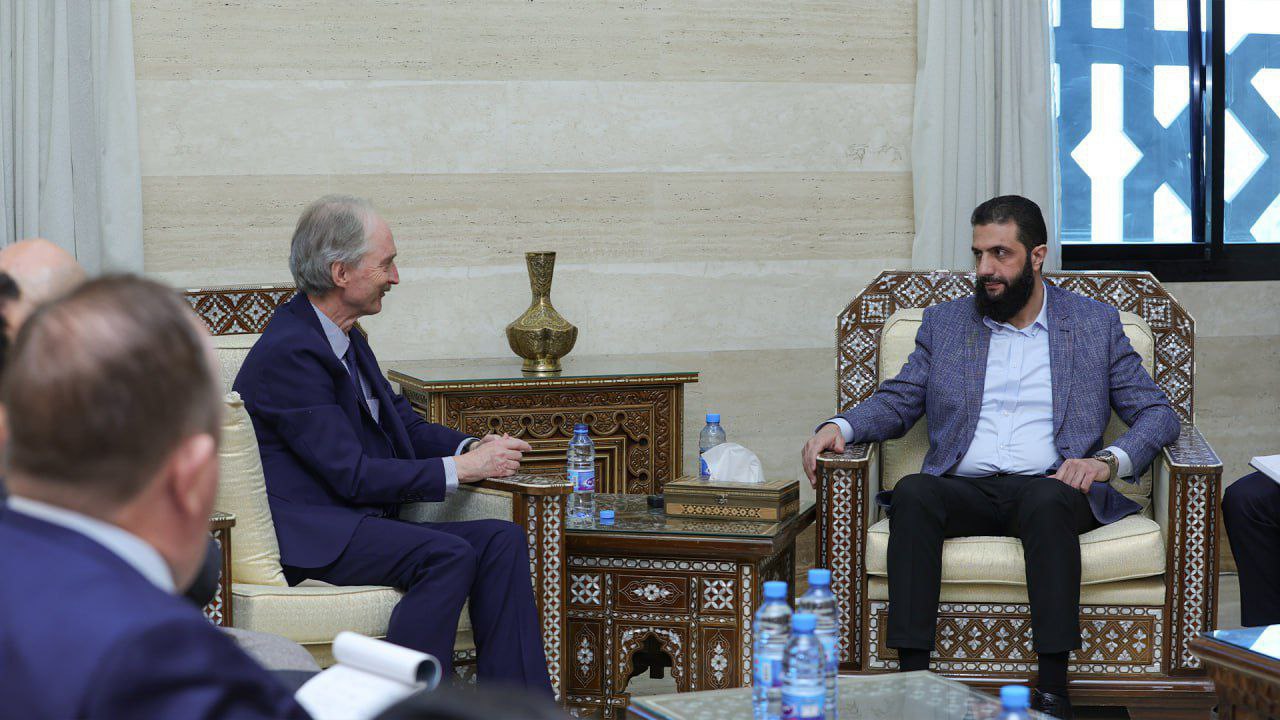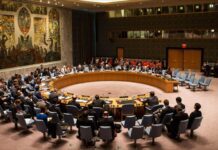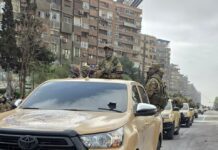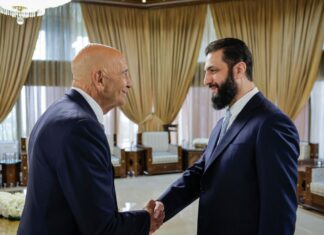
The Syrian Transitional Government (STG) is taking its first steps to reshape the nation following the fall of Bashar al-Assad’s regime, prioritizing political reform, economic recovery, and the return of displaced citizens. These efforts are being closely monitored by regional and international powers as the STG works to stabilize a country ravaged by nearly 14 years of war.
Ahmad al-Sharaa, Commander of Command of Military Operations (CMO), met with UN Special Envoy Geir Pedersen on Sunday to discuss updating UN Resolution 2254, which has long guided international discussions on Syria’s future. Al-Sharaa stressed that recent political changes necessitate a review of the resolution to align with the new realities on the ground.
Reconstruction, and Refugee Return
During their meeting, al-Sharaa emphasized the need for comprehensive planning to ensure Syria’s territorial unity, rebuild destroyed infrastructure, and provide economic opportunities to encourage the safe return of millions of refugees.
“The transitional phase must be handled with caution and precision to avoid missteps,” al-Sharaa said, calling for collaboration with specialized teams to rehabilitate institutions and foster a stable environment. Pedersen, on his first visit to Damascus since the regime’s fall, echoed the importance of inclusivity in Syria’s political process. “We do not want any revenge operations in Syria. State institutions must work fully and securely to support the recovery process,” he said, adding that he hopes sanctions on Syria can soon be lifted to aid economic rebuilding efforts.
Key Reforms Announced
During his meeting with journalists, Ahmad al-Sharaa outlined several sweeping reforms aimed at transforming Syria’s governance, economy, and security. He announced plans to disband all armed factions, restricting the use of weapons to state institutions to ensure centralized control and prevent the risks posed by non-state actors. Compulsory military service, a long-standing source of public grievance, will be abolished and replaced with optional, short-term training camps designed to maintain readiness without imposing undue burdens on citizens.
Interior Minister Muhammad Abdulrahman addressed concerns about accountability and reintegration during the transitional period, he revealed former regime officers had burned numerous buildings and installations to conceal evidence of their crimes. Despite this Abdurahman stressed the STG’s commitment to pursuing justice, ensuring that anyone involved in spilling Syrian blood or crimes against the people would face legal consequences.
However, Abdulrahman emphasized the importance of national reconciliation, stating that defectors who abandoned the regime at the start of the revolution would be reintegrated into their roles to help rebuild the new Syria. “We are committed to ensuring the security and protection of all segments of Syrian society,” Abdulrahman said.
On the economic front, al-Sharaa revealed plans to increase wages and salaries by 400% and introduce a new Syrian currency, which will be printed once the exchange rate stabilizes. Reconstruction efforts will prioritize rebuilding destroyed homes and facilitating the resettlement of displaced persons. Special attention will be given to dismantling displacement camps in areas like Idlib, Aleppo, and Hama, enabling millions of internally displaced Syrians to return to their communities.
Additionally, the STG will focus on restoring autonomy and governance in provinces such as Raqqa, Hasaka, and Deir Ezzor, ensuring these regions are managed by their local populations. Qualified Syrians living abroad will also be invited to return and contribute their expertise to the country’s rebuilding efforts, a move seen as vital to addressing Syria’s human resource needs during this critical transitional period.
International Engagement
The international community has responded with cautious optimism. Qatar announced it will reopen its embassy in Damascus on Tuesday, marking the first time it has resumed diplomatic ties with Syria since severing them in 2011. Qatar also pledged relief efforts, including an air bridge to provide humanitarian aid, and reaffirmed its support for the Syrian people’s aspirations for dignity and justice.
The UK has committed $63 million in aid to support vulnerable Syrians, including refugees across the region, while the EU signaled its willingness to engage with the new administration in Damascus. EU Foreign Policy Chief Josep Borrell said the STG’s actions in the coming weeks will determine the level of European involvement, with a diplomatic envoy arriving in Damascus on Monday to begin discussions.
Comprehensive Dialogue
Badr Jamous, head of the Syrian Negotiating Commission (SNC), reiterated the importance of launching a Syrian-led dialogue under UN supervision in Damascus. He called for a participatory transitional governing body, inclusive of revolutionary forces, civil society, and representatives of the transitional authority.
“A comprehensive national conference must bring together all segments of Syrian society to draft a new constitution and lay the groundwork for democratic elections,” Jamous said. The negotiating body emphasized that elections should take place in a safe and neutral environment under UN oversight to ensure “true representation of the Syrian people’s will.”
A Promising Future
Al-Sharaa described the STG’s current efforts as laying the “broad outlines” for Syria’s future, promising decisions in the coming days that will positively impact citizens’ lives. He expressed optimism about the media’s role in supporting the STG and maintaining transparency.








